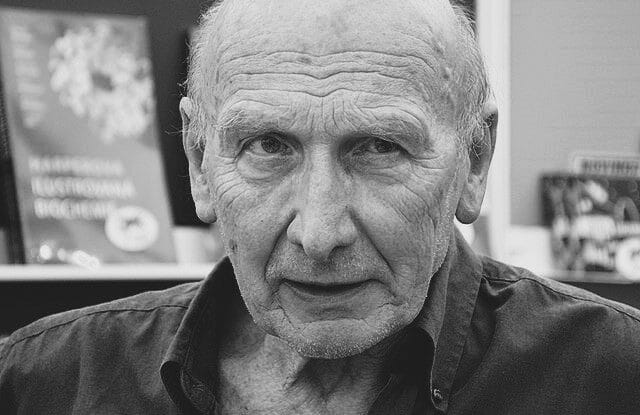PRAGUE, Czech Republic — Jiri Cerny, a prominent Czech music critic who exposed Western music to generations of listeners behind the Iron Curtain and became one of the anti-communist Velvet Revolution voices in 1989, has died. He was 87.
Cerny died on Thursday in a hospital in Prague, according to his colleague Jan Rejzek, who announced his death on Czech public television. There were no specifics provided.
Cerny, born on February 25, 1936, in Prague, began writing about rock’n’roll in a weekly magazine for young people in Czechoslovakia in the early 1960s when such a novelty was viewed with mistrust by communist authorities.
He was sacked a year after introducing the country’s first radio hit parade, “Twelve on a Swing,” in 1965.
Cerny and his first wife, Miroslava, ran the show until 1969. He was dismissed after playing a song mocking the Soviet forces that invaded Czechoslovakia in 1968 to crush the Prague Spring, a brief period of liberal reforms intended to lead to the country’s democratization.
In 1966, he co-authored a book on the Beatles with Miroslava, a first in the communist world.
In 1971, he began touring the country with a bag full of records, performing in a show known as an anti-discotheque because he couldn’t find a job under the hard-line communist administration that took over following the invasion.
Jiri Cerny, a prominent Czech music critic who exposed Western music to generations of listeners, has died. He was 87.
He performed forbidden Czech musicians to audiences that couldn’t hear them anywhere else at the time, an activity he continued until 2022.
He found himself amid political instability in 1989.
Cerny was a founder member of the Civic Forum, a newly formed opposition organization founded by the late Vaclav Havel that was essential in the democratic transition.
Cerny stepped in as an impromptu spokesperson.
He welcomed Havel and other speakers to the large gatherings in Prague’s Wenceslas Square, where he read out the demands for political change that ended in the communist era’s demise.
Cerny turned down an invitation to become culture minister in the first post-communist Czech government to concentrate on what he understood best, music. As editor-in-chief, he founded Rock & Pop magazine in 1990, returned to radio broadcasting, and wrote several articles and books.
In 2013, he was honored by the Czech Culture Ministry for his contributions to music.
SOURCE – (AP)









